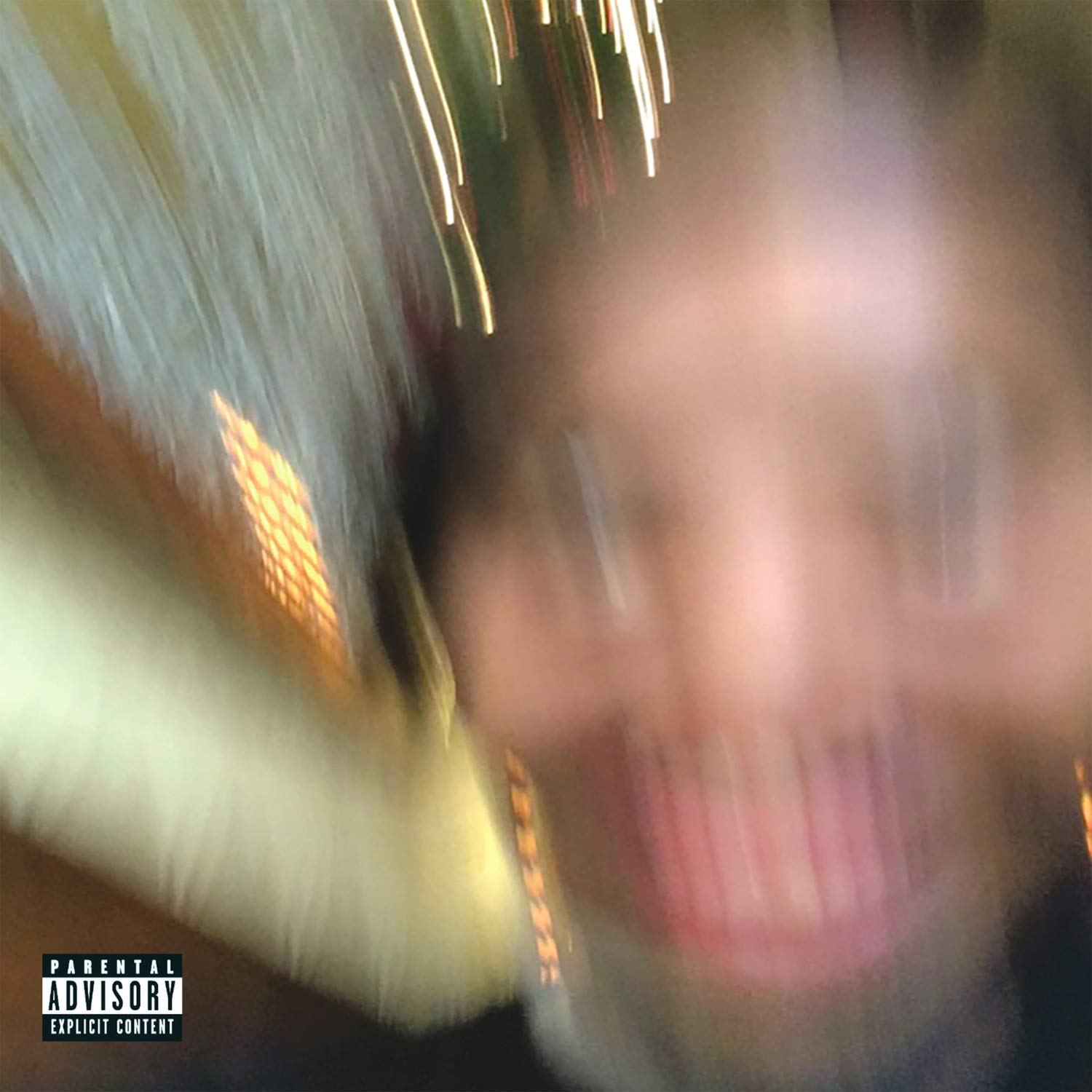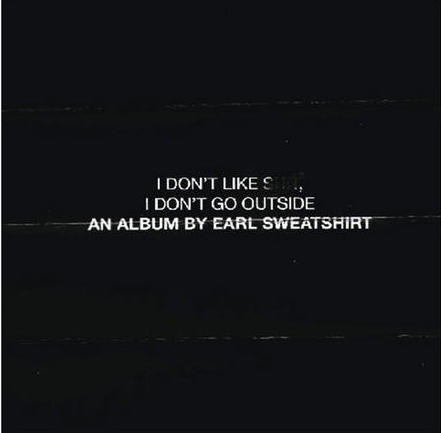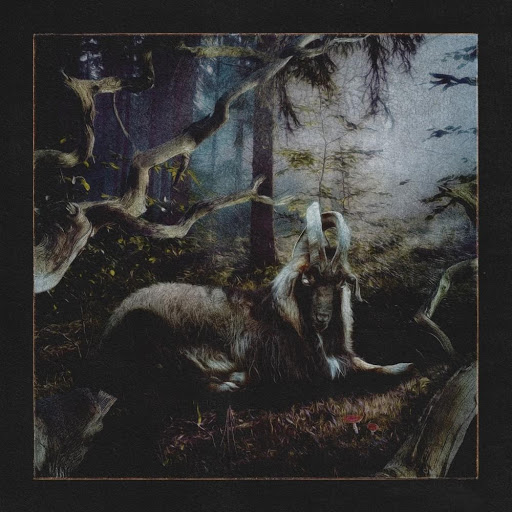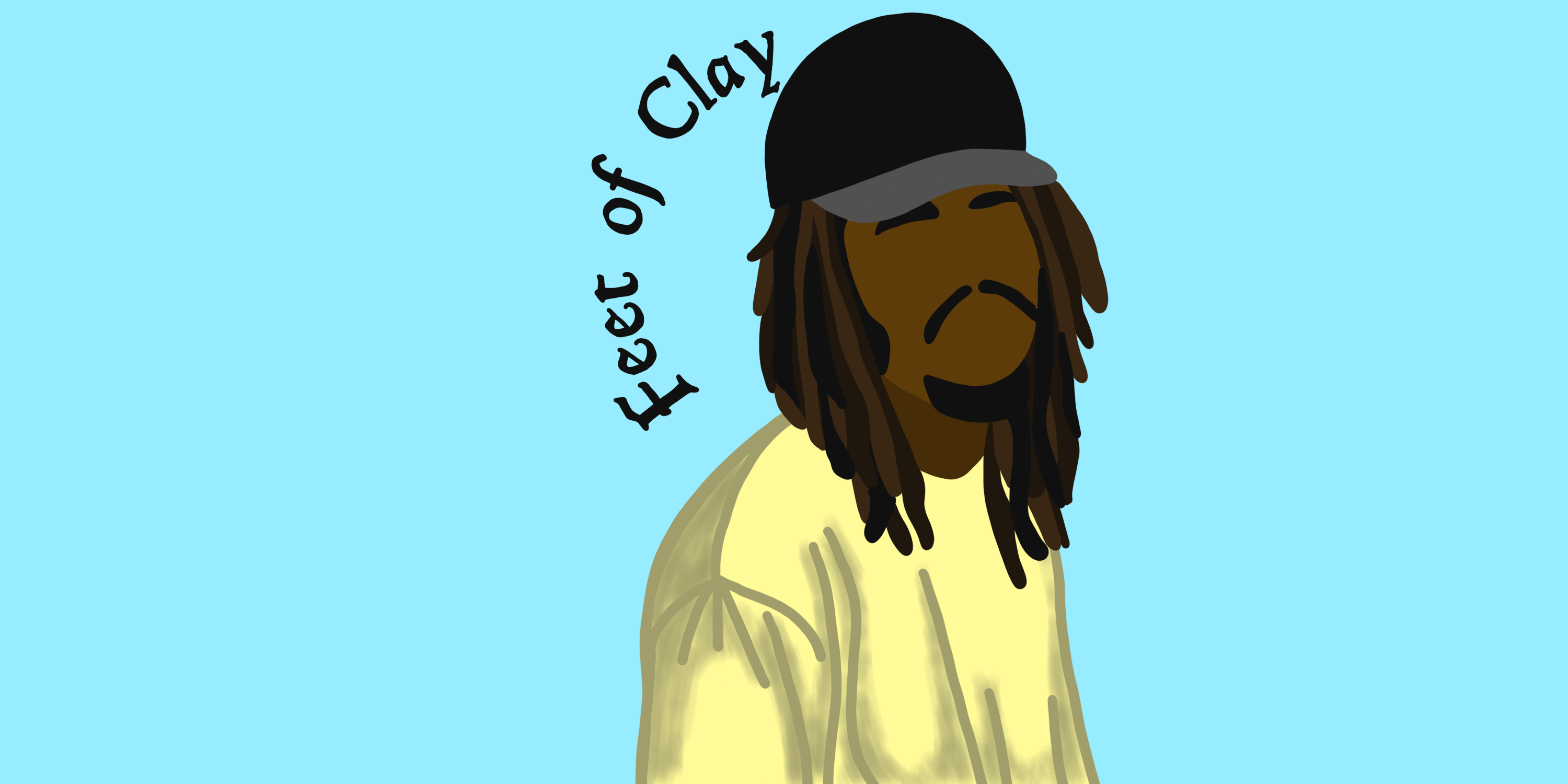Halloween 2019. After a raucous midnight showing of The Rocky Horror Picture Show in a packed Music Box Theatre (remember those days?), my dehydrated, sobered up roommates and I got into the car and started the shivery drive back to our apartment. Snow had come early and Connor was driving slowly to avoid long patches of black ice.
Since our freshman year of high school, Connor and I had been rapping along to our favorite Earl Sweatshirt tracks together, so when I said that Earl had dropped a new record called Feet of Clay that night, he told me to grab the aux cord without hesitation. We knew Earl’s music to be dark and dagger-tongued, making it perfect for soundtracking the late hours of Halloween.
Earl starts rapping on opening track “74” at 0:01 seconds, his subsequent verse over a subterranean slow beat hard to penetrate upon first listen, save for a few key phrases: “death circling like carrion,” “the veil lifts / the pain salient.” We said nothing until we parked outside our place but it was clear from the first song that this wasn’t the record we were expecting. Feet of Clay is a record that processes grief and dread in the face of capitalism through unsettling samples and coded verses in a mere fifteen minutes. It’s been a year now and I’m still digesting it.


It’s not that the album’s strange and dense sound came without warning. Some Rap Songs, Earl’s eagerly-awaited follow-up to 2015’s I Don’t Like S–t, I Don’t Go Outside, had arrived the year before with similarly murky production, mature lyricism, and brief song lengths. Some Rap Songs was my favorite album of that year. It came out at the end of November and I quickly fell in love with its distorted, vivid sampling and Earl’s raps, which were simultaneously abstract and pointed. Feet of Clay digs even deeper into this pocket, its loops dustier, glitchier, the verses more difficult to follow, even more esoteric.

Feet of Clay album cover
“I just can’t get into it. I mean, it doesn’t even sound like he’s rapping,” Connor said as we sat, parked by the curb. He was right in a way: Earl isn’t trying to make his introspections sound palatable or even clear to an audience on Feet of Clay. This is evident by track two, “EAST,” during which his flow is aimless and heady over an accordion sample without drums. In an early 2020 interview with Acclaim, Earl said on the song’s sample that “everybody calls it left-of-centre because it’s not, like, stock. But the thing is, there’s an area of the world where that loop is stock.”
He’s absolutely right in that the sample works as a rebuke against Eurocentrism, but what’s most off-putting, to me, is his rapping over it: his cadence vague and winding, Earl gulps for air between his busy lines — it gives off a strong sense of dread to this day; it did even more so on that Halloween drive home. Whether intentional or not, a mood of anxiety was strongly established without any easily discernible lyrical narrative.
Track three, “MTOMB,” features the smoothest beat among Feet of Clay’s seven tracks, with haunting background vocals from Liv.e. With a length of 1:10, it’s the shortest song on the record, but it feels substantive with Earl’s flashbacks to youth and dedications to his recently deceased father, a figure who has painted much of Earl’s lyrics. I haven’t mentioned that Feet of Clay is intended to be “a collection of observations and feelings recorded during the death throes of a crumbling empire,” according to Earl — that’s a steep challenge for any record, steeper for one that clocks in at fifteen minutes. “Observations and feelings” is an apt descriptor for Earl’s writing style here, elliptical and fragmented in its critiques of late-stage capitalism: “tricknology you fond of,” “opposites attract opulence,” “they couldn’t fathom all the damage that had to get done.”

“The socialite reformed / alone every night,” one of the most direct lines on “MTOMB,” was powerful when I first heard it; after the COVID-19 pandemic shutdowns, it’s become the album’s most hard-hitting track for me. During the spring’s widespread quarantine period, I didn’t really touch Feet of Clay. I hadn’t since the months after it’d come out — a few tracks here and there would hop on a playlist of mine but it remained too messy and too cryptic for me to really enjoy in full.

That being said, “OD,” the fourth track on Feet of Clay, was one I was extremely excited to hear. A few days prior to Halloween, I was at a costume party and wound up in somebody’s bedroom where a handful of folks were arguing over the best contemporary rapper. Somebody (I forget their costume) made a case for Earl and played a song that had only been recorded at a live performance with less-than-quality audio, but I, in my ranchero attire, was entranced by Earl’s lyrics: “my memory really leaking blood / it’s congealing, stuck / pieces in slums.” I was struck by its presence on the record as well. As a written piece, I think it’s the strongest here; its deeply textured beat, like the corrupted file of a wonderful soul loop, fits perfectly with the rest of the songs on Feet of Clay.

In the wake of this past summer’s Black Lives Matter protests and the brutal police action taken against protestors, Earl, whose given name is Thebe Kgositsile, tweeted out multiple lyrics from “EAST,” including: “cognitive dissonance shattered then the necessary venom restored / as if it matters if you think it matters anymore.” Around that time, I had first watched the conversation between Thebe and his mother, Cheryl I. Harris, at The Museum of Contemporary Art in Los Angeles from December of 2019. It was a landmark moment for the participants as well as for fans of Earl’s music: the relationship between mother and son had gone from infamously strained to as candid and close as one can see during their MOCA event.
Responding to an audience question on his music’s legibility in the context of Black aesthetics, Earl said, “Rap music is slave music. It’s just the modern-day iteration of it. Slave communication had to be encrypted. You got to code … really, if I understand it then it’s like teaching.”
Despite my involvement in said protests and concerns over the coronavirus, my mother, stepfather and I had been planning a trip to Mexico ever since she received her American residency status earlier in the year. It was something we were forced to wait on for my entire life thus far –– I spent long portions of my youth in Mexico but could never imagine being there with my mother. The opportunity didn’t come until the modern world faced one of its biggest challenges yet. As a protestor, a first-generation person of color, and a radicalized student, part of me was celebrating our family’s return to Mexico, while part of me felt guilty over my soon-to-be lack of political involvement. I later found that reconnecting with the land of my blood led to the shattering of some of my own cognitive dissonances.

Ostensibly outside of a white gaze and with a lot of time to walk around in the July sun, I started listening to Feet of Clay again in Mexico and connected more with its abstractions. Mavi’s opening verse on “EL TORO COMBO MEAL,”’ over beautiful pianos and vocal harmonies, revealed lines that had never hit me as they had in that time and place: “I spun to the loss of my grandmother,” “the ancestors hand us a drum.” Emotionally, I was cracking my own codes through these lyrics, contemplating why in the past I’d had reservations about unabashedly loving my culture, my identity and rebuking Eurocentrism.
Being the Mexican-American child of immigrants, as many in the same or similar positions know, is a mind of abstractions: how am I [this] when I’m not really [esto]? People say I’m not from [allí], so I’m from [here], but there’s no [aqui] in me. Why do I try to act like I’m [here] when I’m [there], or am I neither [here] nor [there]? Who am I? What am I?
Racism itself inundates through subtle coded language; the DNA of this record began to make sense. Accepting the importance of my own bloodlines and my place as a Mexican as much as my place as an American led me to hear things in Earl’s lyrics I hadn’t heard before: a love for what is felt but can’t be explained to most, the artful rewiring of a language that can be itself an oppressor, self-definition by way of self-solidarity, solidarity with a surreal totality. “As if it matters if you think it matters anymore.”

Before all of this, since 2018 when Earl first played the song live, I’d been waiting for what would be called “TISK TISK / COOKIES” to appear on a record. Of any song on Feet of Clay it has the most immediate flows and accessible rhythm (and the only chorus!). Though its last verse details loss and grief, Earl repeats: “muddy path, but I’m taking my time.” It reveals a strange practical optimism that has been glimmering through the dark moods of Earl’s music since the 2015 song “Quest/Power.” Nonetheless, I became less interested in “TISK TISK / COOKIES” and was re-listening obsessively on long walks down the same arrid roads to the deeper cuts on Feet of Clay, appreciating the scattered jigsaw pieces of their lyrics and their distorted textures.
The last track on Feet of Clay, “4N,” was one I listened to the least before my time in Mexico. At 4:48, it’s the longest song in Earl’s discography (at the time of writing this article), taking up nearly a third of the record’s runtime. Much of that time is devoted not to raps, but to its calm psychedelic instrumental, one I love now, but its reversed drums became a bit grating to Connor and I when we first heard it. Earl and his featured artist, the underground Haitian-American heavyweight Mach-Hommy, mumble through melodies and end the album with off-beat streams-of-consciousness, leaving the listener with nothing but loose ends, which disappointed us as we got out of the car.
One of us pulled out our keys and cracked a joke about the illegibility of Earl’s new record and we didn’t really talk about the music beyond that. We went to our rooms thinking Earl had gone too far, fallen too deep into his artistic ways and had lost touch with what had made his music so great in the first place. We’d keep on playing his older stuff and trade bars like friend-currency on car rides and drunk nights but never made much mention of Feet of Clay, even after I came back to the United States, where I’d soon celebrate Mexican Independence Day for the first time in face-masked dance circles among friends and strangers who weren’t strangers at all.
A Halloween later, I can’t say that Feet of Clay is Earl’s best album or my favorite of his albums. Is its goat cover some biblical reference like its title, or just Earl flexing his greatness? I don’t know, but I love the way its mist and mushrooms form, out of darkness, some magic. I wouldn’t play it at a Halloween party, or any party, but I don’t think that’s what it’s for. It has taught me to not hold artists up to expectations, to let them progress and to let a piece of art take you in as much as you take it. It has helped me be far more aware of how capitalism has led to ICE traumatizing my family more times than anyone should bear, not by screaming at me but by code. When I play “EL TORO COMBO MEAL,” I think of my late grandmother and the wisdoms that are somewhere in my heartbeat like a drum, like my motherland, with the countless histories I will spend a lifetime listening to on loop. Feet of Clay makes me feel unsettled but determined in the face of chaos, and every time it ends I feel the urge to play it one more time.
Header image by Bridget Killian





NO COMMENT